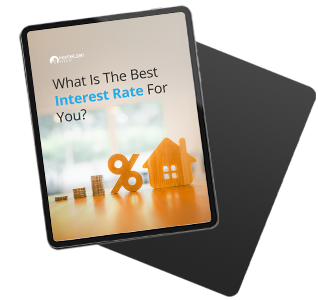Banks don’t always advertise the lowest rate that they can offer even on their low rate home loans. We’ve published the best home loan interest rates from our panel of 30 Australian lenders so that you don’t have to waste your time shopping around.
Special offers
Variable rate home loans
| Loan Category | Interest Rate | Comparison Rate* | Contact Us |
|---|---|---|---|
| $250,000 or above | 5.39% | 5.40% | Apply Now |
| $500,000 or above | 5.39% | 5.40% | Apply Now |
| $1,000,000 or above | 5.39% | 5.77% | Apply Now |
Fixed rate home loans
| Fixed Loan Term | Interest Rate | Comparison Rate* | Contact Us |
|---|---|---|---|
| 1 year fixed | 5.19% | 5.52% | Apply Now |
| 2 year fixed | 5.19% | 5.58% | Apply Now |
| 3 years fixed | 5.09% | 5.46% | Apply Now |
| 4 years fixed | 5.29% | 5.50% | Apply Now |
| 5 years fixed | 5.29% | 5.49% | Apply Now |
| 10 years fixed | 7.24% | 7.84% | Apply Now |
| Interest in advance | 5.69% | 6.29% | Apply Now |
Flexible fixed interest rates
| Flexible Fixed | Interest Rate | Comparison Rate* | Contact Us |
|---|---|---|---|
| 3 yrs flexible fixed | 5.39% | 5.99% | Apply Now |
| 5 yrs flexible fixed | 5.69% | 6.29% | Apply Now |
How to choose the right loan?
While interest rates are important, there is more to choosing a loan than just the rate.
Bank know that almost everyone compares interest rates, however few people compare the LMI premium or the terms & conditions of their home loan. You can use our LMI calculator to see just how large the difference between the banks can be.
Of course if you need some help then you can call us on 1300 889 743 or enquire online and one of our mortgage brokers will help you to find the cheapest loan available.
Which Interest Rate To Settle For?
Your Guide To Finding The Interest Rate That’s Your Best Match

Specialist loans
Non-resident mortgages
| Loan Category | Interest Rate | Comparison Rate* | Contact Us |
|---|---|---|---|
| Best variable rate | 5.79% | 6.14% | Apply Now |
| Best 3 yrs fixed rate | 5.29% | 8.20% | Apply Now |
SMSF mortgages
| Loan Category | Interest Rate | Comparison Rate* | Contact Us |
|---|---|---|---|
| Variable SMSF loan | 6.44% | 7.04% | Apply Now |
| 3 yrs fixed SMSF | 6.39% | 6.99% | Apply Now |
| 5 yrs fixed SMSF | 6.69% | 7.29% | Apply Now |
Low doc home loans
| Low Doc Loans | Interest Rate | Comparison Rate* | Contact Us |
|---|---|---|---|
| 60% low doc loan | 6.29% | 6.89% | Apply Now |
| 80% low doc loan | 6.54% | 7.14% | Apply Now |
| 3 yrs fixed low doc | 6.54% | 7.14% | Apply Now |
| 5 yrs fixed low doc | 6.54% | 7.14% | Apply Now |
Reference rates
Reserve Bank of Australia (RBA)
| Loan Category | Interest Rate | |
|---|---|---|
| Current RBA cash rate | 4.10% | on 1/4/2025 |
| Last RBA rate change | 4.10% | on 1/4/2025 (the cash rate was held) |
Standard variable interest rates
| Loan Category | Interest Rate | Comparison Rate* | Contact Us |
|---|---|---|---|
| Average std var rate | 8.51% | N/A | Apply Now |
| CBA std var rate | 8.55% | 9.15% | Apply Now |
| WBC std var rate | 8.58% | 9.18% | Apply Now |
| ANZ std var rate | 8.39% | 8.99% | Apply Now |
| NAB std var rate | 8.52% | 9.12% | Apply Now |
*WARNING: This comparison rate is true only for the examples given and may not include all fees and charges. Different terms, fees or other loan amounts might result in a different comparison rate. Each comparison rate is calculated based on $150,000 over 25 years for a secured loan.
Do I have a good interest rate?
The best way to ensure that you’re getting a competitive interest rate is compare your rate to the rest of the market.